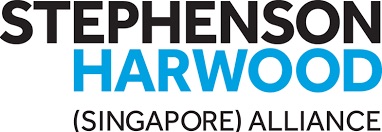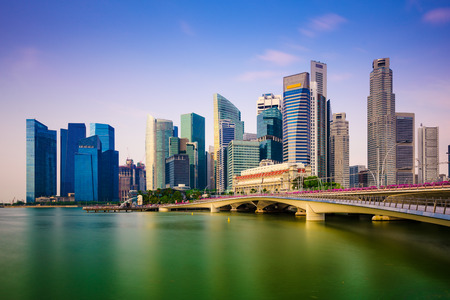31 October, 2017
On 10 March 2017, the Singapore Government passed the Companies (Amendment) Act 2017 which introduced an inward re-domicile regime in Singapore. The effect of this is that from 11 October 2017, foreign companies are now entitled to transfer their registration from their original jurisdiction, to Singapore, without having to set up a subsidiary in Singapore. Once re-domiciled, the foreign company will become a Singapore company registered under the Accounting and Corporate Regulatory Authority of Singapore ("ACRA") and will be required to comply with provisions under the Companies Act like any other Singapore-incorporated company.
What are the benefits of the inward re-domicile regime?
There are several reasons why the new regime is advantageous to foreign firms. Since foreign companies do not have to set up a subsidiary in Singapore, re-domiciliation to Singapore provides significant scope for reduction in operational disruption to the company. The foreign company's obligations, liabilities, properties or rights will not be affected by the re-domiciliation.
Not only will a company be able to preserve its corporate history, identity and branding all whilst being able to relocate its regional or global headquarters, but the change also provides for greater flexibility in the reorganisation of corporate groups for regulatory, strategic and organisational purposes. Some high-regulated industries also require a proven track record (e.g. in order to obtain a license), and re-domiciliation provides the certainty of a company's corporate history.
Re-domiciliation will allow companies to take advantage of Singapore's stable political, economic and legal infrastructure, its pro-business legislation and competitive tax regime and its highly skilled workforce. Given that Singapore is renowned for its international reputation, foreign companies will also be able to benefit from the greater proximity to the wider Asian markets.
What are the applicability requirements?
In order for a foreign company to be able to apply for re-domiciliation, it must be a body corporate that can adapt its legal structure to the companies limited by shares structure under Singapore's Companies Act.
In order to qualify for the regime, the foreign company must meet any 2 of the following criteria:
(i) The value of its total assets exceeds S$10million;
(ii) Its annual revenue exceeds S$10 million;
(iii) It has more than 50 employees at the end of each financial year.
The criteria set out above must be met in the two financial years immediately preceding the foreign company's re-domiciliation application.
How to apply for re-domiciliation?
The foreign company must reserve its proposed name (which can be the name used in its original jurisdiction) but rules on name reservations will apply.
To apply for transfer of registration, a foreign company must submit an application together with all the necessary supporting documentation, namely the following: a certified copy of the charter, statute, constitution or memorandum of articles or any other instrument constituting or defining its constitution in its place of incorporation; the constitution by which the foreign company proposes to be registered in Singapore; a certified copy of the certificate of incorporation (or a document of similar effect) of the foreign corporate entity in its place of incorporation; and the relevant declarations.
After registration
Once the application has been approved, the foreign company will be registered as a company limited by shares in Singapore.
Once registered as a company in Singapore, a document evidencing deregistration of the foreign company in its place of incorporation must be submitted to ACRA within 60 days after the date of registration.
Should the company require more time to provide the document evidencing deregistration in its place of incorporation, the company may apply for an extension of time. Failure to do so may lead to the Registrar revoking registration of the company.
What other factors should be considered?
Although the change is a very welcomed change, there are a number of other factors that you should consider if you are a foreign company that wishes to re-domicile as follows:
The company may not be able to be re-domiciled in Singapore if the original jurisdiction in which the company is registered does not have a re-domiciliation regime, or does not allow for outward re-domiciliation to an alternative jurisdiction (for example, the United Kingdom and Hong Kong). Jurisdictions which do allow for outward re-domiciliation include (but are not limited to) Australia, Marshall Islands, Canada and New Zealand.
The company should consider how the transfer will be treated in their home country, for the purposes of tax and stamp duty, as well as the tax implications in Singapore.
Singapore does not allow outward re-domiciliation so there is no option to reverse the decision if the company deems the regime to no longer suit their needs. Therefore, the foreign company should consider its objectives and the legal implications of re-domiciliation.
It can take up to 2 months from the date of submission of all required documentation, to process the transfer of registration. This includes time that may be required for ACRA to refer the application to another government agency for review or approval (for example, if the company's intention is to set up a private school, the application will be referred to the Ministry of Education).
Companies should also register any pre-existing charges with ACRA within 30 days after registration.
If the foreign company was registered as a foreign company under the Companies Act before re-domiciliation, the foreign company registration will cease to exist upon re-domiciliation.
The Registrar of Companies may, under certain circumstances, refuse to register a foreign company. In these circumstances, the aggrieved person may, within a prescribed timeline, lodge an appeal to the Minister for Finance.
Since this is a new regime in Singapore, we have, to date, not yet seen successful re-domiciliations done. In view of the attractiveness of this regime, we expect that there will in due course be many examples of successful inward re-domiciliation to Singapore.
How can we help you?
The benefits of the new regime provide an alternative option for foreign companies to relocate their businesses without disrupting the key operations of their companies. We are well placed to assist with, and oversee the process of re-domiciliation and the legal implications that surround the new regime.

For further information, please contact:
Elaine Beh, Partner, Virtus Law LLP
(a member of the Stephenson Harwood (Singapore) Alliance)
elaine.beh@shlegalworld.com

.jpg)




